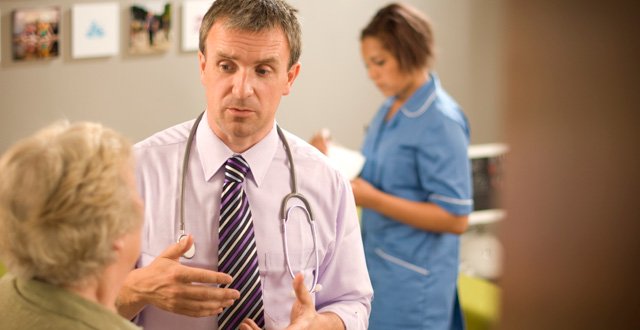
<strong></strong>In 2017, the Royal Australian College of General Practitioners ran a public awareness campaign to promote general practice. I have to admit, it almost had me, with its soft-focus cinematography, attractive, confident, caring GPs, perfectly balanced for gender, age and colour. And the evocative language: “I interpret the great unknown, but I’m not an astronomer. I understand dark clouds, but I’m not a meteorologist.” I was almost convinced, until the final statements: “I am a GP. But I’m not just a GP. I’m your ‘specialist in life’.” A slogan that clearly undermined the very profession the campaign was trying to promote. “Not just a GP… your ‘specialist in life’.”
It sounded like something that would have prompted Fr Trendy to pose his signature question: “Can I get in there, Mike?” on the <em>Live Mike Show</em> many years ago. Possibly followed-up by: “We have to ask ourselves the basic questions. What IS a GP? What IS a specialist? And what IS life?” In Ireland, it is not the public that need to be convinced of the value of general practice, but the politicians and Department of Health. Answering Fr Trendy’s hypothetical questions might be as good a place as any to start.
A GP is a general practitioner, not a specialist practitioner. As a GP, I can help you if you think you are ill; if you are wondering if that chest pain you had last week is angina or costochondritis. If you think your sore throat might need an antibiotic. If you need extra blood pressure tablets or your bloods checked. If you are wondering if you are just a bit sad or clinically depressed. If your baby’s six-week check is normal and if it is a good idea to get that same baby vaccinated. As a GP, I can fit your Mirena, do your smear test, inject your carpal tunnel, stitch your head and syringe your ears. I can meet a whole host of diverse needs, but I am not a specialist. I did not train to be a specialist in anything. I trained to be a GP. Specialists are found in hospitals or some newer version of secondary care and they are better able to explain their own role.
And what is life? A little word for a big concept. Advice on ‘life’ is probably best taken from the lifestyle section of the weekend newspapers, because I am not an expert in the latest fashions, the best anti-wrinkle creams or this year’s favourite holiday destinations. I don’t know any more than the average Sunday newspaper reader about adventure sports, meeting your soulmate or making plans for retirement. I cannot ‘interpret the great unknown’ and do not necessarily understand your ‘dark clouds’. I have a hard enough job managing my own little life. I have no desire or expertise that qualifies me to advise you on how to manage yours.
A few weeks ago, a friend who works in HSE finance asked, “but what is it you actually do all day? Sitting at a desk, in front of a computer, what can you actually do for people’s health?”
“If you need to ask, you probably don’t need to know,” I replied. Blessed with robust good health and already well into his 50s, he was one of the lucky ones who had never attended a GP. But his question was genuine. Also, he might need a GP some day and it would help if he had some idea of what we were about. I tried to convey the constant navigating between health, illness and disease. The management of the ill who deny their illness and the well who are convinced they are ill. The effort it took to be there, at that desk, in front of that computer, with no idea what would come through the door. No idea what knowledge, skills or attitudes were going to be called out before leaving for home that evening. I added that as well as practising medicine, most GPs that I knew were also business owners, employers, teachers, lecturers, researchers, health advocates, college representatives and even some writers. Others work with emergency services, advise the Government, attend the dying, the homeless, deliver care to refugees. “Right, I get the picture,” he interrupted me. “I’ll stick to balance sheets, regular hours and a predictable paycheck.”
General practice is in crisis. At the heart of this is the fact that those, like my friend, who do not use the service do not know what it is worth. GPs and their patients are the only ones who can explain its value. But the lily does not need to be gilded. We should never need to pretend to be anything other than just GPs.





Leave a Reply
You must be logged in to post a comment.